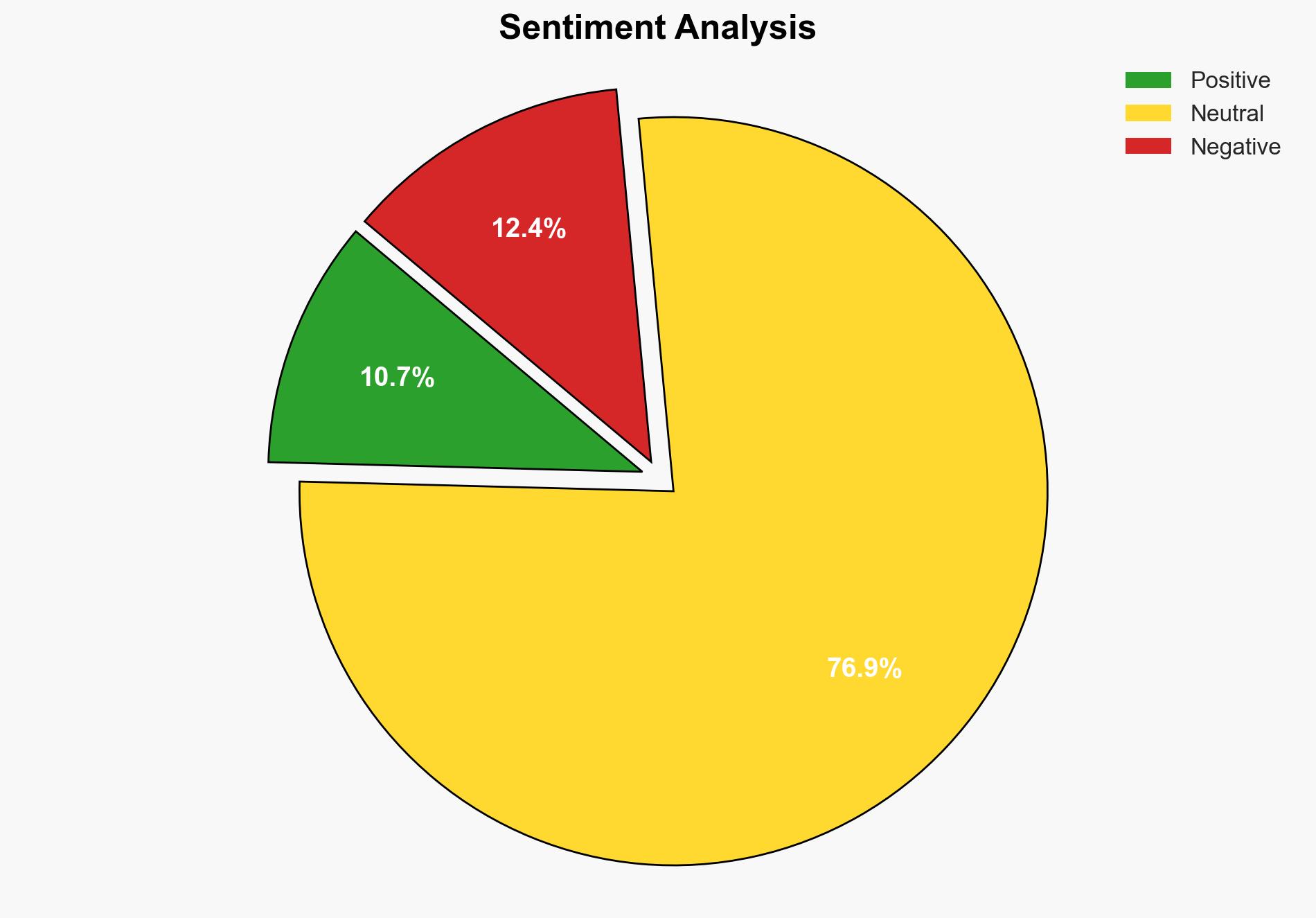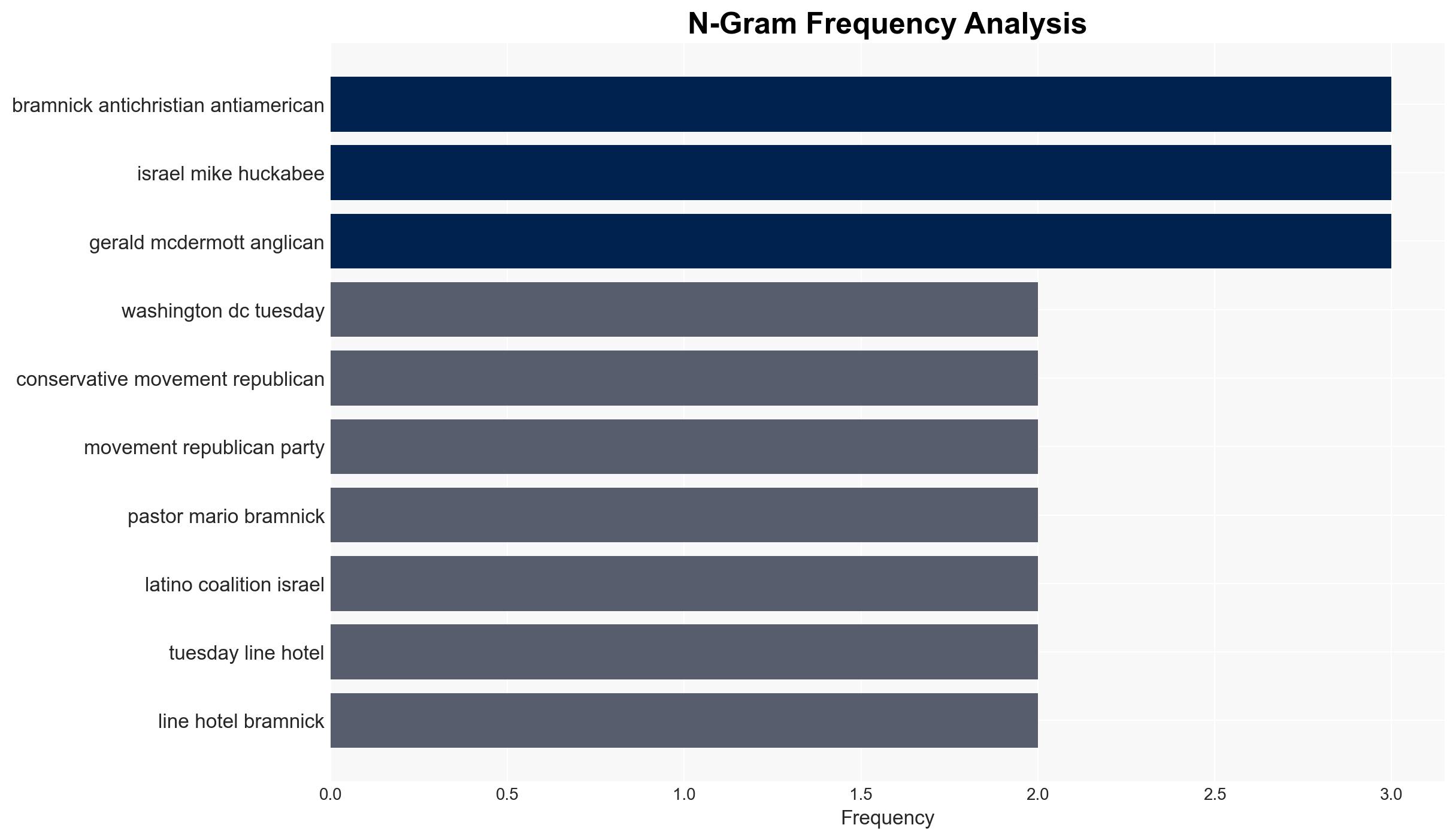Conservative Leaders Gather to Keep Antisemitism Out of the GOP Conservative Movement – Daily Signal
Published on: 2025-11-19
AI-powered OSINT brief from verified open sources. Automated NLP signal extraction with human verification. See our Methodology and Why WorldWideWatchers.
Intelligence Report:
1. BLUF (Bottom Line Up Front)
There is a concerted effort by conservative leaders to prevent antisemitism from gaining traction within the GOP and the broader conservative movement. The most supported hypothesis is that this initiative is a proactive measure to maintain ideological integrity and prevent factionalism. Confidence Level: Moderate. Recommended action is to support coalition-building efforts and monitor for potential backlash or radicalization within fringe elements.
2. Competing Hypotheses
Hypothesis 1: Conservative leaders are genuinely committed to preventing antisemitism to preserve the integrity and inclusivity of the conservative movement. This hypothesis is supported by the diverse coalition of leaders from various faiths and backgrounds actively participating in the initiative.
Hypothesis 2: The initiative is primarily a strategic move to counteract negative perceptions and political liabilities associated with antisemitism, rather than a deep-rooted ideological commitment. This hypothesis considers the potential for public relations motivations and the need to appeal to a broader voter base.
Hypothesis 1 is more likely given the involvement of high-profile leaders and the historical context of antisemitism being a divisive issue. However, elements of Hypothesis 2 cannot be entirely discounted.
3. Key Assumptions and Red Flags
Assumptions: The coalition’s leaders are acting in good faith and have the capacity to influence the broader conservative movement. The GOP is receptive to these efforts.
Red Flags: Potential for tokenism or superficial engagement without substantive policy changes. Risk of backlash from extremist factions within the movement.
Deception Indicators: Discrepancies between public statements and private actions or affiliations of key leaders.
4. Implications and Strategic Risks
The initiative could mitigate the risk of antisemitism becoming mainstream within the GOP, preserving party unity and appeal. However, failure to address underlying issues could lead to factionalism and empower extremist elements. Politically, this could influence voter demographics and impact election outcomes. There is also a risk of cyber and informational threats from groups opposing the initiative.
5. Recommendations and Outlook
- Support coalition-building efforts through policy development and public engagement.
- Monitor fringe elements for signs of radicalization or backlash.
- Engage in dialogue with community leaders to ensure genuine inclusivity and address concerns.
- Best-case scenario: Successful integration of antisemitism prevention into GOP policies, strengthening party unity.
- Worst-case scenario: Backlash from extremist factions leading to increased division and potential violence.
- Most-likely scenario: Incremental progress with occasional setbacks due to internal and external pressures.
6. Key Individuals and Entities
Mario Bramnick, Luke Moon, Ellie Cohanim, Victoria Coates, Yaakov Menken, Morton Klein, Mike Huckabee, Marco Rubio, Donald Trump, Leo Terrell, Harmeet Dhillon, Pam Bondi, Ralph Reed, Tony Perkins.
7. Thematic Tags
Structured Analytic Techniques Applied
- Cognitive Bias Stress Test: Expose and correct potential biases in assessments through red-teaming and structured challenge.
- Bayesian Scenario Modeling: Use probabilistic forecasting for conflict trajectories or escalation likelihood.
- Network Influence Mapping: Map relationships between state and non-state actors for impact estimation.
Explore more:
National Security Threats Briefs ·
Daily Summary ·
Support us





